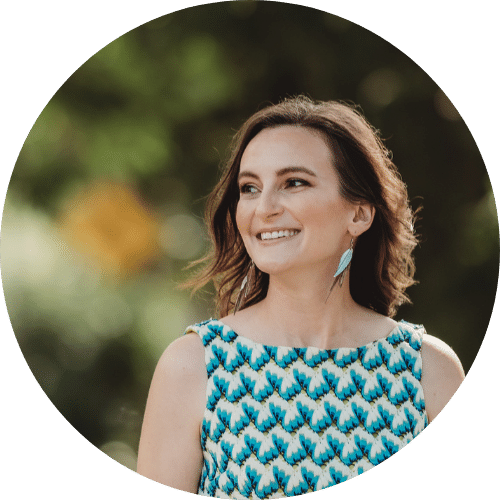In 2020, my family and I moved to a small farm in Southern Ontario, Canada.

Neither my husband nor myself have a farming background, we didn’t grow up around livestock and we both had very small vegetable gardens as kids.
We wanted to get involved in small-scale farming because we believe that big agriculture is not sustainable.
I first learned about permaculture design when I started planting trees in my suburban backyard outside Dallas, Texas and they kept dying.
I learned more about the interconnected world of soil life. I got to appreciate how important water flow is, and how planting more than one thing together can help the whole do better.
After successfully planting some fruit trees, I wanted to bring animals into the picture to help increase our fertility and add diversity. But our bylaws didn’t allow chickens, and we were feeling the itch to move back to Canada closer to family.
So we made the plunge and bought a 17-acre horse farm. We’ve kept a few of the original horses as boarders, and we’re grateful because we learned so much about farm life from these longtime horse owners who have seen it all.
After moving we jumped in with both feet and welcomed chickens, geese, ducks, and dairy sheep to our farm. Not to mention a few barn cats, and all of the amazing birds, butterflies, and bees.
We’ve been called “software nerds who pick up sheep turds” and that feels like a great way to put it.
The farm is an ever-evolving project, where we continue to plant more trees, and practice rotational grazing in an effort to regenerative the land and sequester carbon.
We’ve also added a greenhouse to grow a large variety of vegetables for our family. We provide eggs to our neighbors, and we’re slowly building a community of like-minded people.
While our goal is not to completely be self-sufficient or never shop at the store, we believe that anything we can produce ourselves offsets the carbon effects of growing food far away and shipping it to a cold place like Canada.
We are farming in an integrated world, which means we buy grains for our animals from a local granary, which is made possible through big agriculture.
I don’t think it’s possible to grow 100% of your own food and not be dependent on other producers. But I do think choosing to be in a place to grow food is admirable, especially knowing how much work goes into it.
Every little bit helps.
Plus, we’re foodies and we know that homegrown and fresh always tastes better. Ask our kids who are broccoli obsessed and never turn down a glass of sheep’s milk.
We’ve had to learn so many skills since moving to the farm: building animal shelters, fencing, animal husbandry, midwifery, the nuances of hay, preserving food, and so much more.
If you want to follow along on our farm adventures, I’ve started a YouTube channel where I share some of my learnings.
Fellow along on the adventure
Waykeeper Farm & Nerdery on YouTubeGet my insights and stories without the influence of a social media algorithm.

